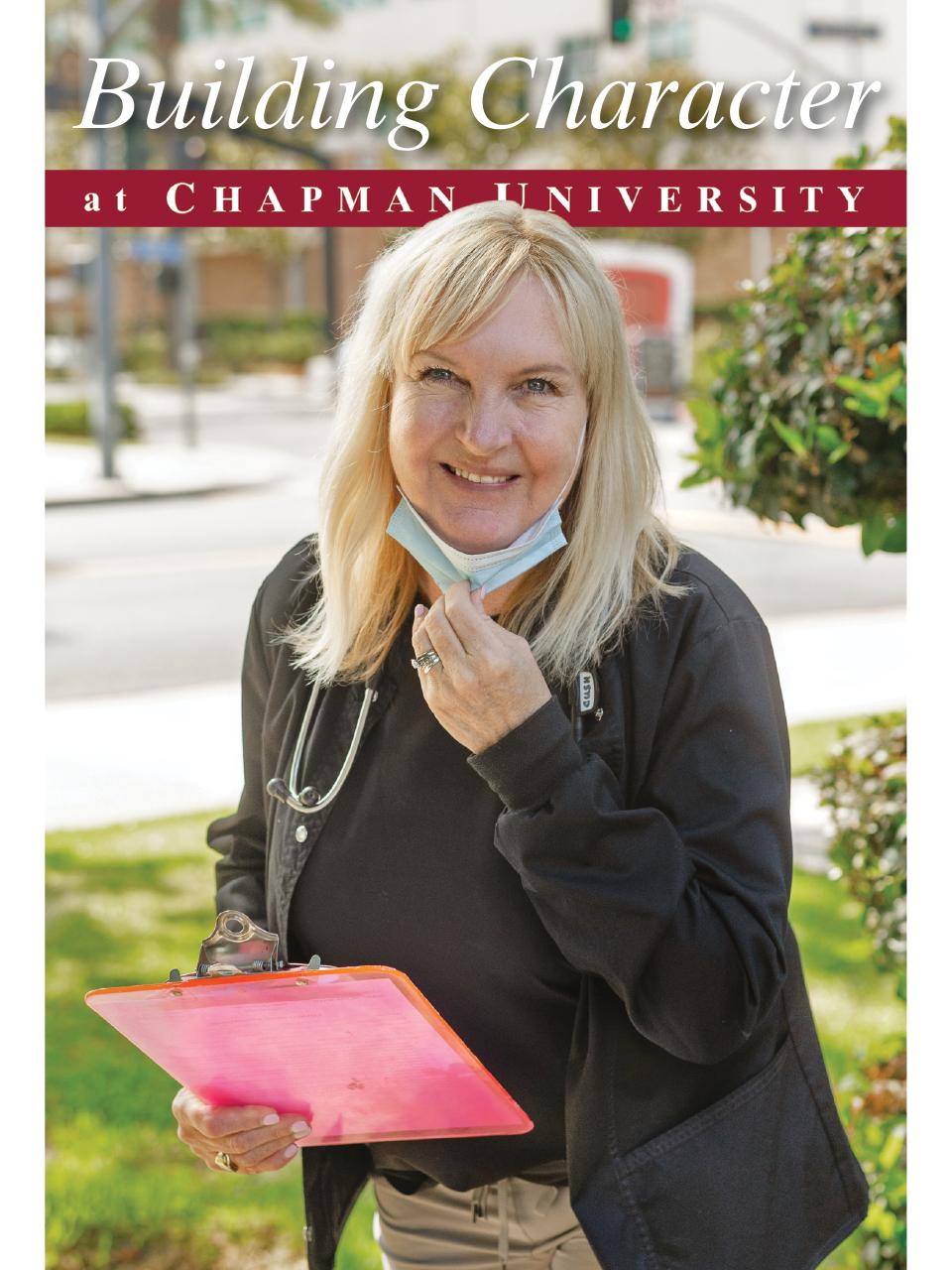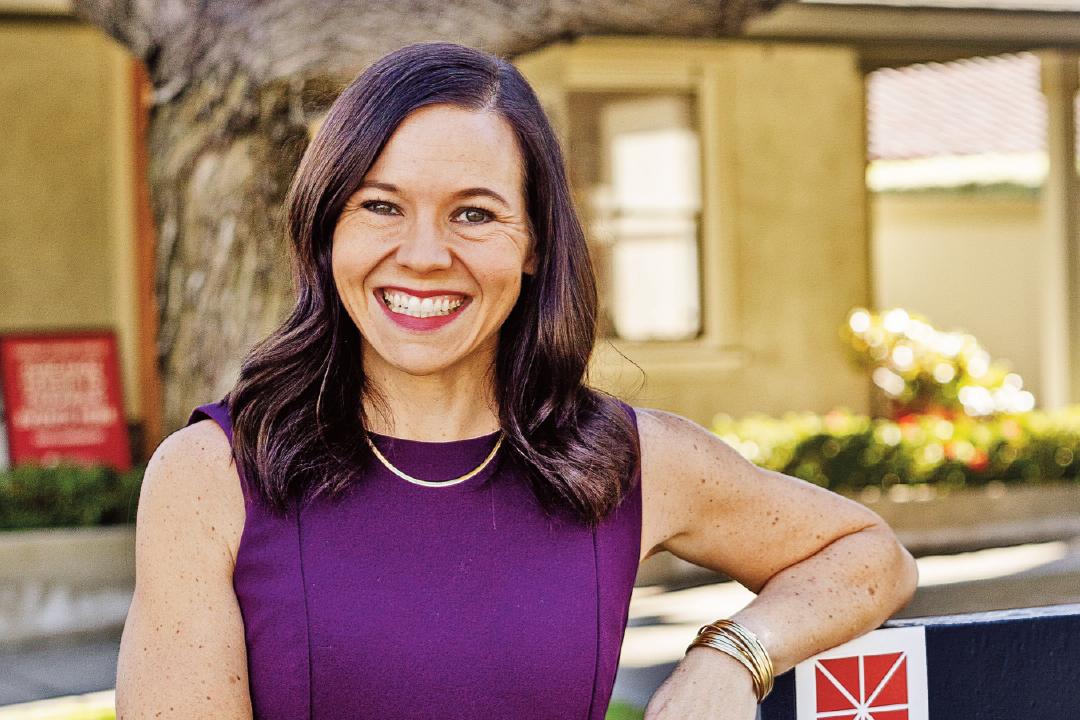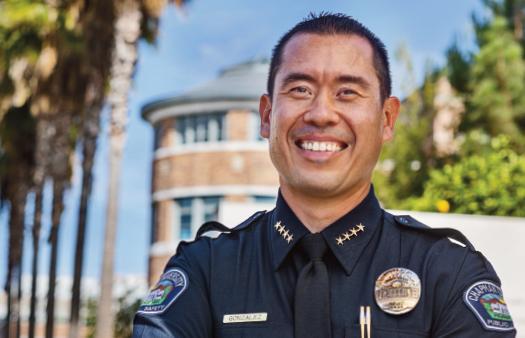
Jacqueline Deats, Nurse Practitioner
When students go away to college, adulting becomes a reality. One of the tasks they are soon faced with is managing their own health care. As Director of Student Health at Chapman University, Jacqueline Deats enjoys helping guide students with their medical care choices.
“For many students, this is the first time they have pursued medical care on their own without their parents overseeing,” says Deats. “This is our opportunity at the Student Health Center to help them navigate the health care system, learn to become their own health advocates and make healthy, informed decisions for themselves.”
The mission of Student Health Services, which Deats has embodied since taking over as director in 2006, is to provide accessible health care in a caring, confidential, convenient environment for Chapman University students. The emphasis is on promoting self-care and health education while providing the highest quality standards of health care.
“We know that physical well-being has a tremendous impact on academic performance,” says Deats, who is a Nurse Practitioner. “The goal of medical services is to provide the opportunity for academic success, while the focus is to offer students easy access to health care and disease prevention.”
Challenges of Covid-19
When Covid-19 hit in early 2020, all the foundational work Deats and her team had accomplished over the years immediately came into play. It quickly became obvious how important the role of the Student Health Center was.
“Prior to the pandemic, unless students had a health issue, they didn’t come to the center, and faculty and staff didn’t use the facility, unless Workman’s Comp was involved,” says Deats. “When the pandemic arrived, the Student Health Center was considered essential, so all health staff remained on campus.”
In response to the pandemic, Deats was asked to oversee a task force for screening, testing and tracing Covid for the Orange and Rinker campuses. “The Student Health Center is responsible for implementing mitigation measures to reduce the spread and exposure of Covid 19 on the campuses,” says Deats. She oversaw Covid screening in collaboration with other team players at the school and the Orange County Department of Health. This work included implementing a screening tool that Chapman is still using.
“We have tested thousands of people, and our department oversees a whole contract tracing team,” says Deats. “Prior to the pandemic, I had a team of five. Now I manage 30 employees.”
Deats and the IT department Strategic Marketing and Communications also oversee communication to the Chapman community regarding the pandemic. This includes Chapman’s CU Safely Back page on the university website. The page offers guidelines for keeping healthy based on recommendations from the Centers for Disease Control and Prevention (CDC) and local health authorities. The site also indicates the current risk level regarding Covid-19.
To date, Deats believes that the mitigation efforts achieved by the Student Health Center has helped keep the number of positive cases at the school relatively low. “The goal was and is not to be on the news because we have a student outbreak,” she says. “Fortunately, no one became seriously ill, and there were no deaths.”
Growth Opportunities During the Pandemic
The early days of the pandemic were particularly challenging for Deats and her team. “We did the best we could based on the information we had, but things changed so rapidly, so we were always on our toes. I think we did well considering that we had no playbook, and the work involved long hours with no end in sight. The entire Chapman community has been so supportive of our efforts. I’ve met and worked with so many amazing people over the course of the pandemic who I wouldn’t have met otherwise.”
From his vantage point as President of Chapman University, Daniele Struppa feels that Deats and her team did a remarkable job during the pandemic. He expressed this sentiment when he nominated her for the Celebration of Heroes Award for supporting Chapman University through the pandemic, which she received this past April.
“Jacqueline brings to Chapman many years of professional experience,” said Struppa. “She has been the front-face of Chapman's response to the pandemic. As the potential for Covid-19 coming to campus became an urgent concern, Jacqueline led and organized Chapman’s screening, testing and tracing effort for the entire campus community. Her commitment and exceptional leadership throughout the past several months have been a major factor in the overall good health and very low positivity rate of the Chapman campus community.”
Aileen Andrion, Assistant Director of the Health Center, agrees. “Covid has shown how strong of a leader Jacqueline is through this difficult time. She is always thinking about what is best for Chapman and the Student Health Center and how we can help our Chapman community remain safe. Despite whatever challenges are thrown her way, she continues to fight through and keeps going. Working with her helps me grow to be a better Nurse Practitioner. Jacqueline has taught me so many things and is someone I admire greatly.”
Orange County Beginnings
Deats was born in New York and moved to California when she was five where she was raised in Seal Beach. Her mother was a nurse and her sister is currently a nurse.
“I followed in my mother’s footsteps and pursued a career in medicine,” she says. “I always admired the work that she and other family members did to help people, and I’m grateful to have been able to pursue my passion.”
After becoming a Nurse Practitioner in 1993, Deats worked in the private sector in acute patient care in women’s health for a time. In 1998, she also began working at Chapman parttime in the Student Health Center. In 2006, she joined the university fulltime, after interviewing for the Student Health Center director role and being hired for the position.
Deats and her husband, Doug, raised their three children in Huntington Beach. “All of my kids had the opportunity to attend Chapman, and my oldest daughter is also a nurse practitioner,” she says.
Institutional Biosafety Committee
Another way Deats keeps the university safe is serving as Alternate Chair of Chapman University’s Institutional Biosafety Committee (IBC). Registered with the NIH Office of Biotechnology Activities, the IBC is responsible for the registration, review and approval of all research projects associated with the university that involve potentially hazardous biological materials.
“I enjoy the alternate chair position, which I’ve held since 2019, because it allows me to dabble in a different arena,” says Deats. “It’s fun to have a finger on the pulse of research across the university and learn about the various projects that students, faculty and staff are proposing. I enjoy providing guidance and support in that area, as it falls on the academic side, when I’m usually working in student services. The position has further enhanced my Chapman experience.”



